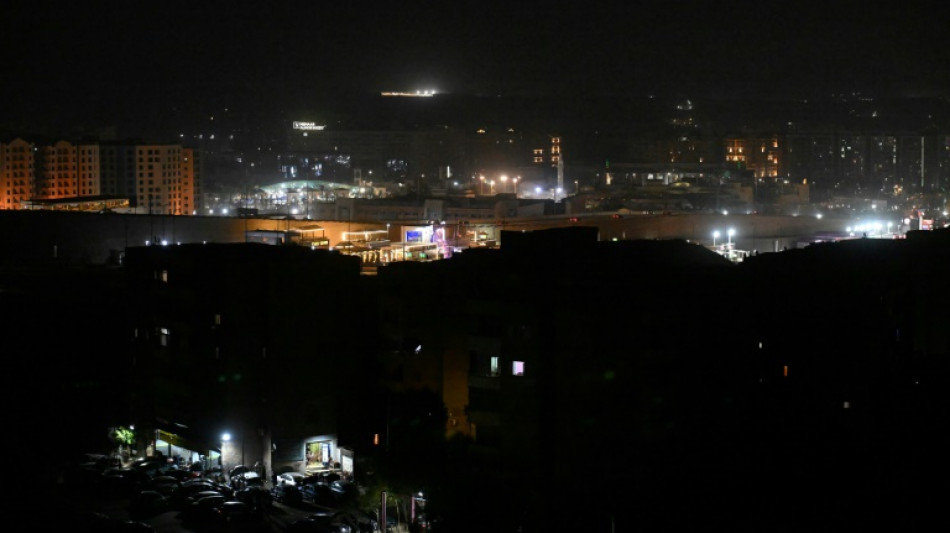
-
 Nigeria signals more strikes likely in 'joint' US operations
Nigeria signals more strikes likely in 'joint' US operations
-
Malaysia's former PM Najib convicted in 1MDB graft trial

-
 Elusive wild cat feared extinct rediscovered in Thailand
Elusive wild cat feared extinct rediscovered in Thailand
-
Japan govt approves record budget, including for defence

-
 Seoul to ease access to North Korean newspaper
Seoul to ease access to North Korean newspaper
-
History-maker Tongue wants more of the same from England attack

-
 Australia lead England by 46 after 20 wickets fall on crazy day at MCG
Australia lead England by 46 after 20 wickets fall on crazy day at MCG
-
Asia markets edge up as precious metals surge

-
 Twenty wickets fall on day one as Australia gain edge in 4th Ashes Test
Twenty wickets fall on day one as Australia gain edge in 4th Ashes Test
-
'No winner': Kosovo snap poll unlikely to end damaging deadlock

-
 Culture being strangled by Kosovo's political crisis
Culture being strangled by Kosovo's political crisis
-
Main contenders in Kosovo's snap election

-
 Australia all out for 152 as England take charge of 4th Ashes Test
Australia all out for 152 as England take charge of 4th Ashes Test
-
Boys recount 'torment' at hands of armed rebels in DR Congo

-
 Inside Chernobyl, Ukraine scrambles to repair radiation shield
Inside Chernobyl, Ukraine scrambles to repair radiation shield
-
Bondi victims honoured as Sydney-Hobart race sets sail

-
 North Korea's Kim orders factories to make more missiles in 2026
North Korea's Kim orders factories to make more missiles in 2026
-
Palladino's Atalanta on the up as Serie A leaders Inter visit

-
 Hooked on the claw: how crane games conquered Japan's arcades
Hooked on the claw: how crane games conquered Japan's arcades
-
Shanghai's elderly waltz back to the past at lunchtime dance halls

-
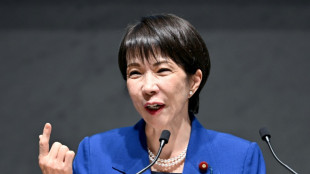 Japan govt approves record 122 trillion yen budget
Japan govt approves record 122 trillion yen budget
-
US launches Christmas Day strikes on IS targets in Nigeria

-
 Australia reeling on 72-4 at lunch as England strike in 4th Ashes Test
Australia reeling on 72-4 at lunch as England strike in 4th Ashes Test
-
Too hot to handle? Searing heat looming over 2026 World Cup

-
 Packers clinch NFL playoff spot as Lions lose to Vikings
Packers clinch NFL playoff spot as Lions lose to Vikings
-
Guinea's presidential candidates hold final rallies before Sunday's vote

-
 A Christmas Message to the DEA's Diversion Anti Marijuana Cabal
A Christmas Message to the DEA's Diversion Anti Marijuana Cabal
-
QAT Community Sets QuantumTrade 5.0 for Public Beta Testing in March 2026

-
 BondwithPet Expands B2B Offering with Custom Pet Memorial Product
BondwithPet Expands B2B Offering with Custom Pet Memorial Product
-
Best Crypto IRA Companies (Rankings Released)

-
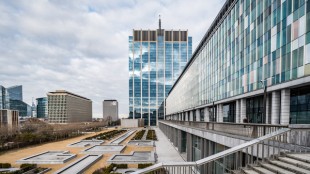 Eon Prime Intelligent Alliance Office Unveils New Brand Identity and Completes Website Upgrade
Eon Prime Intelligent Alliance Office Unveils New Brand Identity and Completes Website Upgrade
-
Villa face Chelsea test as Premier League title race heats up

-
 Spurs extend domination of NBA-best Thunder
Spurs extend domination of NBA-best Thunder
-
Malaysia's Najib to face verdict in mega 1MDB graft trial
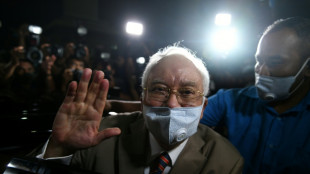
-
 King Charles calls for 'reconciliation' in Christmas speech
King Charles calls for 'reconciliation' in Christmas speech
-
Brazil's jailed ex-president Bolsonaro undergoes 'successful' surgery

-
 UK tech campaigner sues Trump administration over US sanctions
UK tech campaigner sues Trump administration over US sanctions
-
New Anglican leader says immigration debate dividing UK

-
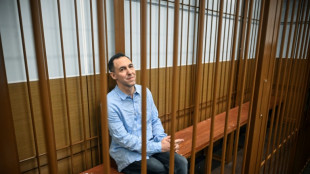 Russia says made 'proposal' to France over jailed researcher
Russia says made 'proposal' to France over jailed researcher
-
Bangladesh PM hopeful Rahman returns from exile ahead of polls

-
 Police suspect suicide bomber behind Nigeria's deadly mosque blast
Police suspect suicide bomber behind Nigeria's deadly mosque blast
-
AFCON organisers allowing fans in for free to fill empty stands: source

-
 Mali coach Saintfiet hits out at European clubs, FIFA over AFCON changes
Mali coach Saintfiet hits out at European clubs, FIFA over AFCON changes
-
Last Christians gather in ruins of Turkey's quake-hit Antakya

-
 Pope Leo condemns 'open wounds' of war in first Christmas homily
Pope Leo condemns 'open wounds' of war in first Christmas homily
-
Mogadishu votes in first local elections in decades under tight security
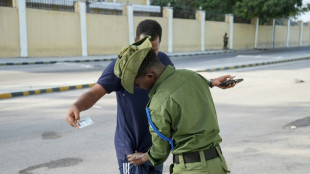
-
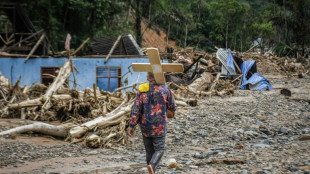 'Starting anew': Indonesians in disaster-struck Sumatra hold Christmas mass
'Starting anew': Indonesians in disaster-struck Sumatra hold Christmas mass
-
Cambodian PM's wife attends funerals of soldiers killed in Thai border clashes

-
 Prime minister hopeful Tarique Rahman arrives in Bangladesh: party
Prime minister hopeful Tarique Rahman arrives in Bangladesh: party
-
Pacific archipelago Palau agrees to take migrants from US
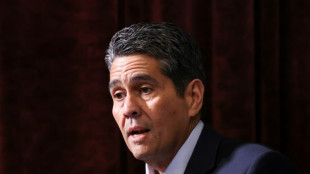

Short fuses in Egypt as blackouts stretch into sweltering summer
At least once a day, the hum of every fan, air conditioner and fridge across Egypt goes quiet. The lights go out and an expletive is muttered or hurled into the quickly-heating air.
Lifts stop, errands are cancelled and meetings delayed for as long as the power stays out -- hopefully an hour or two, but recently even longer.
It is now a year since energy and foreign currency crises led Egypt's government to institute planned blackouts known as "load shedding".
But the measures have not been felt equally across the country.
In the southern city of Aswan, where temperatures neared 50 degrees Celsius (122 degrees Fahrenheit) in the shade earlier this month, "the lights are out for up to four hours a day, and with them the water", Tarek, a resident of western Aswan, told AFP.
"Especially in the villages, there's no schedule of any kind. Food is spoiling in the fridge, people are getting heatstroke, and no one seems to care," he said, requesting a pseudonym for fear of reprisal.
In June, the Aswan parliamentarian Riham Abdelnaby said dozens had died of heat-related illness.
She called for the southern governorate to be exempted from the blackouts, which she said "threaten citizens' lives".
- High tempers and temperatures -
Amid three heatwaves in June, the blackouts grew longer and more frequent -- and with them nationwide frustration, including from talk show hosts who have been fervent supporters of the government.
"Electricity is not a luxury, this is the most basic right," prominent journalist Lamis al-Hadidy wrote on Monday on social media site X.
"The power going out takes out the water and telephones and the internet, and destroys electrical appliances, who is going to compensate the people for all of this?"
A decade ago, Egypt faced similar power cuts, which helped fuel popular discontent and protests against the short-lived presidency of the late Islamist leader Mohamed Morsi.
The present-day blackouts come as Egyptians face the worst economic crisis of their lives, with inflation and currency devaluations shredding savings and leaving families struggling to make ends meet.
Since 2022, the Egyptian pound has lost two-thirds of its value, and last year inflation reached a record 40 percent.
Amr Adib, host of the popular Al-Hekaya talk show, addressed officials directly on Sunday, saying they had "failed to set a proper schedule and failed to stick to the hours you promised. And all this, while we know electricity price hikes are coming".
Electricity prices last rose in January, and the government has signalled it is looking to raise them again this year.
This week, as temperatures in Cairo hovered around 40C, swathes of the capital have experienced additional midnight blackouts for up to two hours -- in addition to the existing midday outages.
On Tuesday, as public ire peaked, Egypt's prime minister Mostafa Madbouly held a press conference in which he "expressed the government's apologies to citizens" and said Egyptians should expect three-hour outages to continue this week.
The increased blackouts, he said, were due to a "gas field in a neighbouring country" which supplies natural gas to Egypt going "out of service for over 12 hours". He did not name the country.
The premier also said Egypt would spend $1.2 billion in July, 2.6 percent of the crisis-hit country's precious foreign currency reserves, to shore up its fuel supply.
"We will be able to end power outages entirely for the summer by the third week of July," Madbouly said, signalling that the outages would resume in the fall.
The government is still committed to its plan to end load shedding entirely by the end of the year, he said.
- Death toll -
In his apology, Madbouly said his government was "fully aware" of "how difficult the outages are on citizens", including "the elderly, those with health issues, or other humanitarian concerns."
But the measures have already claimed lives across the country.
Though there has been no official death toll from heat-related illness in Aswan, parliamentarian Abdelnaby told local media there were "around 40 heat-related deaths" within four days in June.
On the other side of the country, in the Mediterranean port city of Alexandria, a musician named Mohammed Ali Nasr died earlier in June after falling down the shaft of a lift he was trapped in during an outage, his brother told local channel Al-Nahar.
Across Egypt, people have taken to planning their lives around the official schedules to avoid getting stuck in lifts. But similar deaths have claimed at least four lives since last year, according to a tally of local media reports.
L.Harper--AMWN


